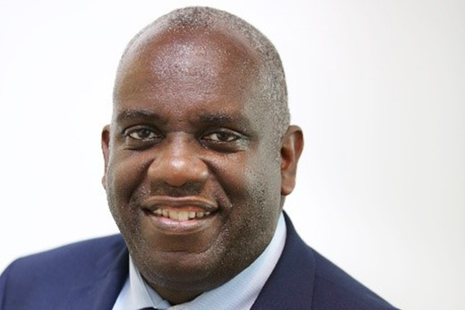The UK’s much-awaited report from the Commission on Race & Ethnic Disparities has failed to acknowledge structural racism in the UK.
According to the Race Commission there is no evidence that Britain is institutionally racist. It also found that “race and racism is becoming less important in explaining social disparities”. However, the 264-page report does makes 24 recommendations to “meaningfully address disparities and inequalities” and promote trust and fairness.
The Commission’s Chairman Tony Sewell, who led the review, believes that if these recommendations are implemented, “it will give a further burst of momentum to the story of our country’s progress to a successful multi-ethnic and multicultural community – a beacon to the rest of Europe and the world.” However, he said there was no proof of “institutional racism” in Britain, despite anecdotal evidence of it.

RACIAL DISPARITIES
Sewell, however, admitted that creating a “successful multi-ethnic society is hard; and racial disparities exist, wherever, such a society is being forged.” But the Committee hopes that its 24 recommendations, which includes ditching the BAME acronym (as reported) will help to achieve that. “We focused our recommendations on the four broad categories of change that the Commission wishes to affect; build trust, promote fairness, create agency and achieve inclusivity – and never assumed that minorities are inert victims of circumstance,” noted the report.
It also pointed out that most of the individuals involved with the report, “are successful minority professionals” which undoubtedly “shaped” the findings. So, the Commission has called for further research on what works in promoting fairness at work, and the role of the family; and the reasons behind the success of those minority groups that have been surging forward into the middle class and the elite.
HUGE DISAPPOINTMENT WITH FINDINGS
The report findings have already met with deep criticism across the country from many groups and equality campaigners. Many leaders, including the country’s Labour party members have shared their huge disappointment with the failure of the report to acknowledge ‘structural’ racism. “Institutionally, we are still racist, and for a government-appointed commission to look into racism, to deny its existence is deeply, deeply worrying,” remarked Halima Begum, Chief Executive of the Runnymede Trust. “We feel that if the best this government can do is come up with a style guide on BAME terminology; or what we should do about unconscious bias training; or extend a few school hours; then I’m afraid this government doesn’t carry the confidence of Black and ethnic minority communities any longer. Certainly not on race.”

Business in the Community’s Race Director Sandra Kerr CBE, believes that there’s nothing in the report “which we haven’t seen before”. She believes the report doesn’t provide full picture. It highlights how much better some ethnic minority groups do in education. But “discouraging the term ‘BAME’ doesn’t tackle the real issue,” she added. “People are still just not comfortable talking about race. Frankly, we cannot say that the UK is better than the rest of the world when we can’t even start something as basic as mandatory ethnicity pay gap reporting.
We don’t need “24 new recommendations”, she added. “We need action on those set out in the 2017 McGregor-Smith Review. Most of all, we need the introduction of ethnicity pay gap reporting. Publishing data may not be a silver bullet, but it is a line in the sand. That’s why the call to publish and capture ethnicity data is one of the five points in BITC’s Race at Work Charter, which now has 635 business signatories and covers 5.5 million employees. It’s time for the government to work with employers publishing voluntarily, not take credit for their hard work. The Commission has missed its opportunity, but I hope the Prime Minister does not. The business world is watching.”

RECOMMENDATIONS TO PROMOTE FAIRNESS & BUILD TRIST
On the launch of the report, Prime Minister Boris Johnson acknowledged that there was much more to be done to tackle racism. However, he said that he wanted to “change the narrative” to highlight stories of success among those from ethnic minority backgrounds; and “stop a sense of victimisation and discrimination”.

The report makes 24 recommendations, grouped into four broad themes of build trust, promote fairness, create agency and achieve inclusivity, as listed below.
BUILD TRUST
- Challenge racist and discriminatory actions. Fund the Equality and Human Rights Commission (EHRC) to use its compliance, enforcement and litigation enforcement powers to challenge policies or practices that either cause significant and unjust racial disadvantage, or arise from racial discrimination. Separately, the government should consider the complex issue of online abuse as a public policy priority.
- Review the Care Quality Commission’s (CQC) inspection process. Review the CQC’s approach to including disparities in the experiences, progression and disciplinary actions taken against ethnic minority staff in their inspections of healthcare providers.
- Improve the transparency and use of artificial intelligence. Issue guidance that clarifies how to apply the Equality Act to algorithmic decision-making and require transparency for public sector bodies when such is applied to decision making concerning individuals.
- Bridge divides and create partnerships between the police and communities. Develop a minimum standard framework for independently-chaired community ‘Safeguarding Trust’ groups that scrutinise and problem-solve alongside policing, and independently inspect forces against this minimum standard.
- Improve training to provide police officers with practical skills to interact with communities. Develop a strategy to improve the efficacy and implementation of stop and search, and de-escalation training ensuring a consistent approach is taken by all police force areas.
PROMOTE FAIRNESS
- Replicate the factors of educational success for all communities. Invest in meaningful and substantial research to understand and replicate the underlying factors that drive success of high performing groups.
- Invest in proven interventions through better targeted funding. Systematically target disparities in education outcomes between disadvantaged pupils and their peers through funding, considering geographical variation, ethnicity, gender and socio-eonomic status.
- Advance fairness in the workplace. Develop resources and evidence-based approaches of what works to advance fairness in the workplace, and which are readily available to employers.
- Investigate what causes existing ethnic pay disparities. Require publication of a diagnosis and action plan for organisations who choose to publish ethnicity pay figures. These should set out the reasons why any disparities exist and what will be done to address them.
- Improve understanding of the ethnicity pay gap in NHS England. Undertake a strategic review of the causes of disparate pay across NHS England and spell out the measures that might meaningfully address any disparities.
- Establish an Office for Health Disparities. Create a new office to properly target health disparities in the UK, focusing on research, communications and expertise to reduce health inequalities across all groups.
- Prevent harm, reduce crime and divert young people away from the criminal justice system. Develop an evidence-based pilot that diverts offences of low-level Class B drug possession into public health services.
- Build social and cultural capital – enrichment for all. Phase in an extended school day prioritising disadvantaged areas to provide pupils with the opportunity to engage in physical and cultural activities that enrich lives and build social and cultural capital.
- Increase legitimacy and accountability of stop and search through body-worn video. Increased scrutiny of body-worn video footage of stop and search encounters, with senior officer involvement required in cases where interactions are of concern and need improvement.
CREATE AGENCY
- Empower pupils to make more informed choices to fulfil their future potential. Issue guidance to higher education institutions to help reduce disparities in applications at an earlier stage and monitored for effectiveness.
- Open up access to apprenticeships. Create a targeted apprenticeships campaign to inform young people facing discrimination or disadvantage of the full range of career pathways open to them and encourage them to take up apprenticeships in growth sectors.
- Encourage innovation. Pilot a new enterprise programme to nurture talent and encourage innovation, targeted at aspiring entrepreneurs from underrepresented and low-income backgrounds across the UK.
- Improve safety and support for children at risk. Develop a digital solution to signpost and refer children and young people at risk of, or already experiencing criminal exploitation, to local organisations who can provide support.
- Undertake a ‘support for families’ review. Carry out a review to investigate and take action to address the underlying issues facing families. This Commission has identified this as a significant contributing factor to the experience of disparities
ACHIEVE INCLUSIVITY
- Making of modern Britain: teaching an inclusive curriculum. Produce high-quality teaching resources, through independent experts, to tell the multiple, nuanced stories of the contributions made by different groups that have made this country the one it is today.
- Create police workforces that represent the communities they serve. Introduce a local residency requirement for recruitment to each police force area, with the College of Policing developing guidance to support implementation.
- Equip the police service to serve the needs of their local communities. Design and evaluate recruitment pilots that match candidates’ life skills with the needs of the communities they serve in their local areas.
- Use data in a responsible and informed way. Develop and publish a set of ethnicity data standards to improve understanding and information gathering, reducing the opportunity for misunderstanding and misuse.
- Disaggregate the term ‘BAME’. Stop using aggregated and unhelpful terms such as ‘BAME’, to better focus on understanding disparities and outcomes for specific ethnic groups.
Click here to read the full report from the Commission on Race and Ethnic Disparities.







































